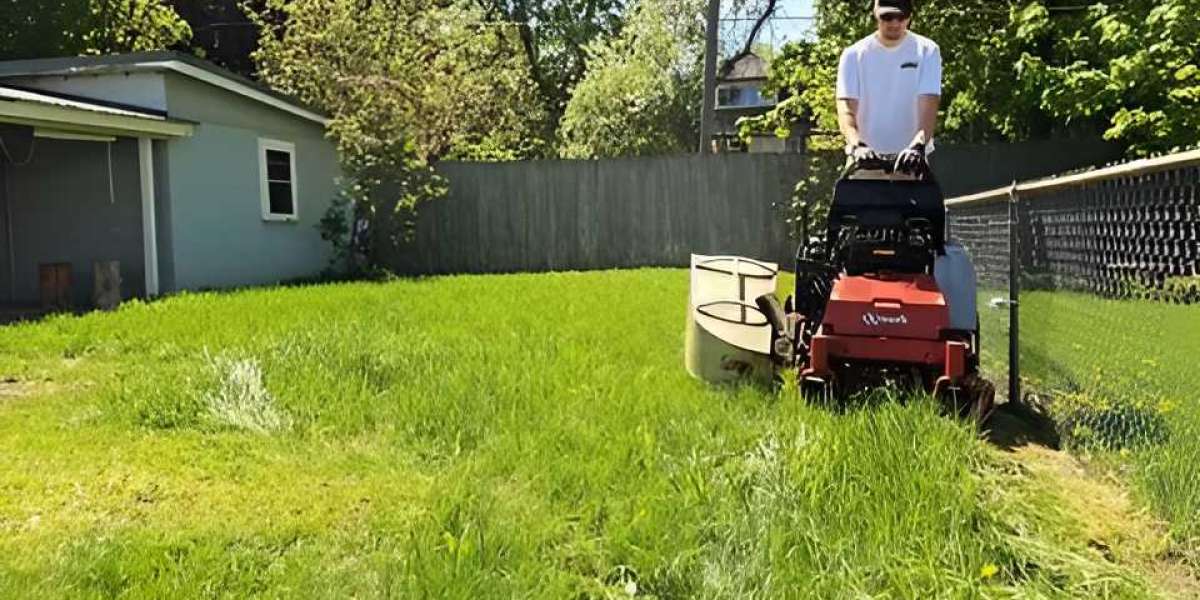Maintaining a lush, green lawn in Atlanta can be a rewarding yet challenging task due to the region's unique climate and soil conditions. Atlanta's subtropical climate brings hot summers and mild winters, making it essential to adopt the right lawn care practices to keep your outdoor space vibrant and healthy throughout the year. This comprehensive guide delves into key aspects of effective lawn care, providing practical tips and insights for homeowners looking to enhance the appearance and health of their lawns in Atlanta.
Understanding Atlanta's Climate and Soil Conditions
Atlanta’s climate is characterized by hot, humid summers and mild winters, which presents both opportunities and challenges for lawn care. The soil in Atlanta is typically clay-heavy, which can impact drainage and nutrient availability. Clay soil can be dense and compacted, making it difficult for grass roots to penetrate and for water to drain effectively. Understanding these conditions is crucial for implementing effective lawn care strategies.
Choosing the Right Grass Variety
Selecting the right type of grass is fundamental to achieving a thriving lawn. In Atlanta, cool-season grasses and warm-season grasses are both viable options. Cool-season grasses, such as Kentucky bluegrass and fescue, thrive in the cooler months of spring and fall, while warm-season grasses like Bermuda grass and Zoysia grass are better suited for the hot summer months. For most Atlanta lawns, warm-season grasses are recommended due to their heat and drought tolerance.
Soil Preparation and Fertilization
Proper soil preparation is essential for a healthy lawn. Start by testing your soil to determine its pH and nutrient levels. Most grasses prefer a pH between 6.0 and 7.0. If your soil is too acidic or alkaline, you can amend it with lime or sulfur as needed. Additionally, incorporating organic matter, such as compost, can improve soil structure, enhance nutrient availability, and promote better drainage.
Fertilization is another crucial component of lawn care. Atlanta lawns benefit from a balanced fertilization approach that includes both nitrogen, phosphorus, and potassium. For warm-season grasses, apply a high-nitrogen fertilizer in late spring and early summer to promote vigorous growth. In fall, switch to a fertilizer with higher potassium content to help the grass prepare for the winter months.
Watering Practices
Watering is a vital aspect of lawn care, particularly during Atlanta's hot summer months. Grass typically needs about one to one-and-a-half inches of water per week, either from rainfall or irrigation. It’s best to water deeply and infrequently to encourage deep root growth. Early morning is the ideal time for watering, as it reduces evaporation and allows the grass to dry before evening, minimizing the risk of fungal diseases.
Mowing Techniques
Proper mowing practices are essential for maintaining a healthy lawn. Set your mower to the appropriate height for the type of grass you have. For warm-season grasses like Bermuda and Zoysia, a mowing height of about one to two inches is ideal. Mowing too short can stress the grass and expose the soil, making it more susceptible to weeds and erosion. Additionally, avoid mowing when the grass is wet to prevent clumping and potential damage.
Pest and Disease Management
Pests and diseases can pose significant threats to lawn health. Common pests in Atlanta include grubs, chinch bugs, and armyworms. Regularly inspect your lawn for signs of pest activity and use appropriate treatments as needed. Additionally, keep an eye out for common lawn diseases, such as brown patch and dollar spot. Proper watering, mowing, and fertilization can help prevent many of these issues.
Weed Control
Weeds can quickly overtake a lawn if not managed properly. Implementing a pre-emergent weed control strategy in early spring can help prevent weed seeds from germinating. For existing weeds, consider using post-emergent herbicides that are suitable for your grass type. Manual removal of weeds, particularly in the early stages, can also be effective in managing their spread.
Seasonal Lawn Care Tips
Each season presents unique challenges and opportunities for lawn care. In spring, focus on cleaning up debris, aerating the soil, and applying pre-emergent herbicides. Summer care involves regular watering and mowing, as well as monitoring for pests and diseases. Fall is the ideal time for fertilizing and overseeding, while winter care involves reducing foot traffic and avoiding excessive watering.
Sustainable Lawn Care Practices
Adopting sustainable lawn care practices can contribute to a healthier environment and reduce your overall maintenance efforts. Consider incorporating native plants and groundcovers to reduce the need for extensive mowing and irrigation. Composting yard waste and using organic fertilizers can also enhance soil health and reduce reliance on synthetic chemicals.
Finding Professional Lawn Care Services in Atlanta
While many homeowners prefer to manage their lawn care themselves, professional services can provide expertise and convenience. For those seeking expert assistance, “Lawn Care in Atlanta” provides a range of services tailored to local conditions and specific needs. These professionals can offer valuable insights, handle complex tasks, and ensure your lawn remains in top condition year-round.
Conclusion
Maintaining a beautiful lawn in Atlanta requires a blend of understanding local conditions, selecting the right grass type, and implementing effective care practices. By focusing on soil preparation, proper watering, mowing, and pest management, homeowners can achieve a lush, green lawn that enhances their outdoor living space. Whether you choose to tackle lawn care on your own or seek professional assistance, the key is to stay informed and proactive in your approach. Embrace the unique challenges of Atlanta's climate and enjoy the rewards of a well-maintained lawn.
For more expert insights and professional lawn care services tailored to Atlanta's climate, visit Lawn Care in Atlanta.







